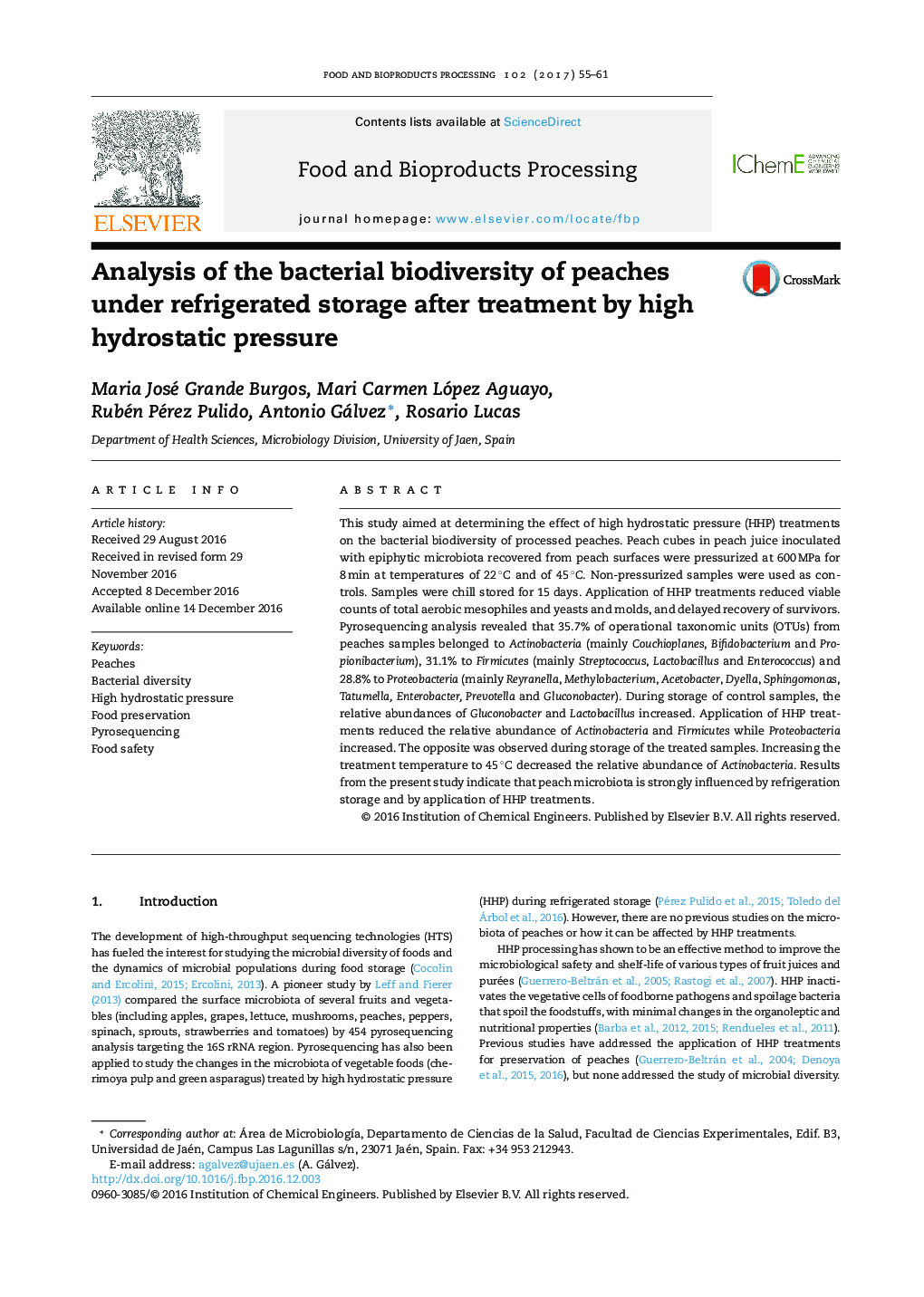| Article ID | Journal | Published Year | Pages | File Type |
|---|---|---|---|---|
| 4752949 | Food and Bioproducts Processing | 2017 | 7 Pages |
Abstract
This study aimed at determining the effect of high hydrostatic pressure (HHP) treatments on the bacterial biodiversity of processed peaches. Peach cubes in peach juice inoculated with epiphytic microbiota recovered from peach surfaces were pressurized at 600 MPa for 8 min at temperatures of 22 °C and of 45 °C. Non-pressurized samples were used as controls. Samples were chill stored for 15 days. Application of HHP treatments reduced viable counts of total aerobic mesophiles and yeasts and molds, and delayed recovery of survivors. Pyrosequencing analysis revealed that 35.7% of operational taxonomic units (OTUs) from peaches samples belonged to Actinobacteria (mainly Couchioplanes, Bifidobacterium and Propionibacterium), 31.1% to Firmicutes (mainly Streptococcus, Lactobacillus and Enterococcus) and 28.8% to Proteobacteria (mainly Reyranella, Methylobacterium, Acetobacter, Dyella, Sphingomonas, Tatumella, Enterobacter, Prevotella and Gluconobacter). During storage of control samples, the relative abundances of Gluconobacter and Lactobacillus increased. Application of HHP treatments reduced the relative abundance of Actinobacteria and Firmicutes while Proteobacteria increased. The opposite was observed during storage of the treated samples. Increasing the treatment temperature to 45 °C decreased the relative abundance of Actinobacteria. Results from the present study indicate that peach microbiota is strongly influenced by refrigeration storage and by application of HHP treatments.
Keywords
Related Topics
Physical Sciences and Engineering
Chemical Engineering
Bioengineering
Authors
Maria José Grande Burgos, Mari Carmen López Aguayo, Rubén Pérez Pulido, Antonio Gálvez, Rosario Lucas,
